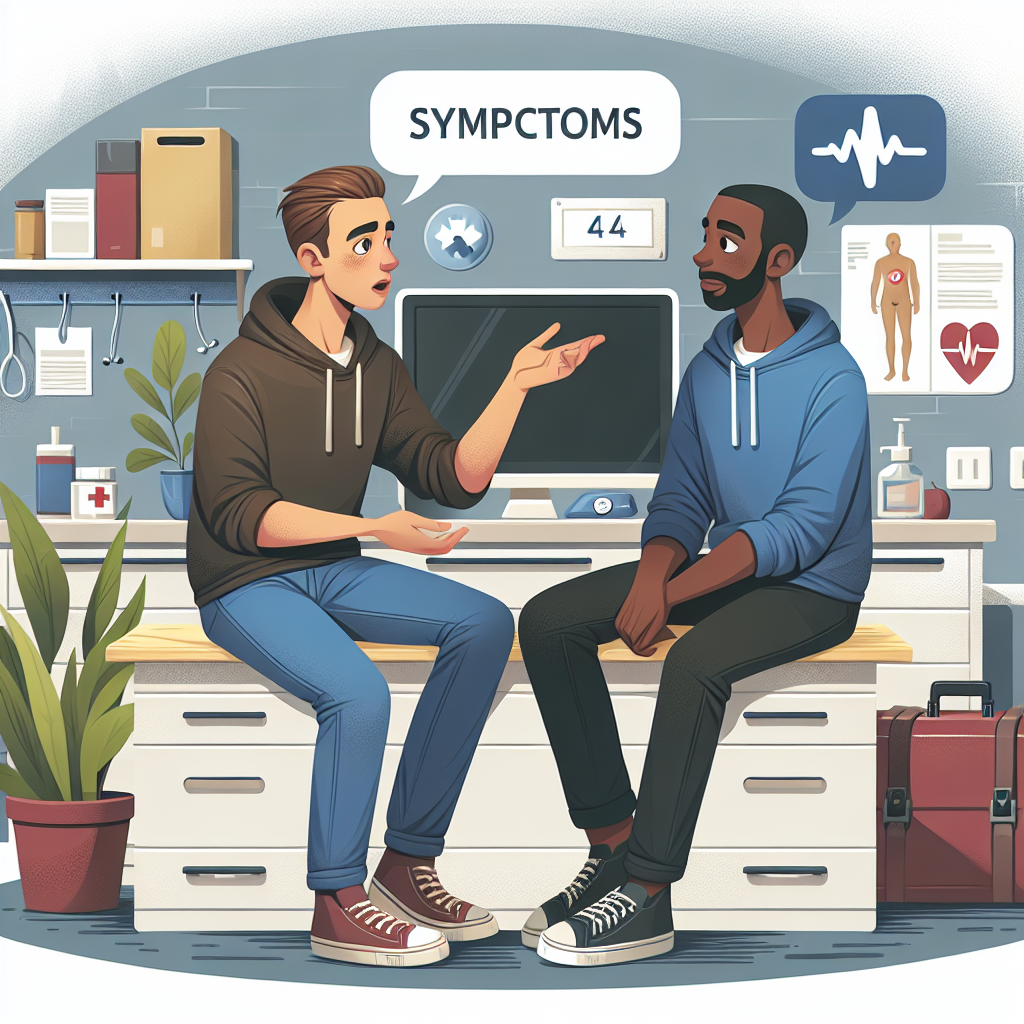餐馆与美食

作为一名英语学习者,能够准确描述自己的健康问题和症状是非常重要的。无论是在看医生时,还是与朋友讨论病情时,掌握合适的表达方式都能让交流更加顺畅。在本文中,我们将探讨一些常见的描述症状的英语对话,并分享一些关键词汇和短语,以帮助您在需要时更有效地表达自己的状况。通过参与这些练习,您将提高会话技巧,为用英语表达健康问题的实际练习做好准备。

作为一名英语学习者,能够准确描述自己的健康问题和症状是非常重要的。无论是在看医生时,还是与朋友讨论病情时,掌握合适的表达方式都能让交流更加顺畅。在本文中,我们将探讨一些常见的描述症状的英语对话,并分享一些关键词汇和短语,以帮助您在需要时更有效地表达自己的状况。通过参与这些练习,您将提高会话技巧,为用英语表达健康问题的实际练习做好准备。
 目录
目录
学习这些基本词汇和短语,以自信地说话
Fever
Cough
Nausea
Dizzy
Fatigue
Headache
Sore throat
发烧
咳嗽
恶心
头晕
疲劳
头痛
喉咙痛
以下是您可能听到或使用的一些常用短语:
I have a headache.
My throat is sore.
I feel dizzy.
I have a fever.
My stomach hurts.
I am feeling nauseous.
I have a cough.
我头疼。
我喉咙痛。
我感到头晕。
我发烧了。
我肚子疼。
我感到恶心。
我咳嗽了。
通过 LingUp 的 AI 自然对话并获得即时反馈。
Complete these sentences using the correct word or phrase.
Politeness(Politeness): In English culture, it's common to start conversations about symptoms with a polite greeting or small talk before directly discussing your symptoms.
Clarity(Clarity): Be clear and specific when describing your symptoms, as this helps healthcare professionals understand and diagnose your condition accurately.
Patience(Patience): Be patient and prepared to answer questions from medical professionals as they often ask detailed follow-up questions to ensure effective treatment.
礼貌(Politeness): 在英国文化中,谈论症状时通常会先用礼貌的问候或闲聊开始,然后才直接讨论症状。
清晰度(Clarity): 在描述症状时要清晰具体,这有助于医护人员准确了解和诊断您的病情。
耐心(Patience): 请耐心并准备好回答医疗专业人员的问题,因为他们通常会提出详细的后续问题以确保治疗效果。
在本文中,你学会了如何有效地用英语描述症状,提高你清晰地沟通健康问题的能力。这些练习包括了关键词汇和真实对话,帮助你在需要用英语讨论健康的真实场合中自如应对。继续练习这些情境,并探索其他情景对话的话题,以进一步丰富你的会话技能。你越多参与这些对话,用英语表达健康问题就会越自信。
在当今全球化的世界中,在看医生或牙医时,掌握英语沟通能力至关重要。无论是旅行还是居住在国外,运用正确的词汇和表达方式能让您与医护专业人士的交流更有效。在本文中,我们将通过医生和牙医角色扮演帮助您练习这些基本的英语会话技巧。您将获得丰富的实用词汇、关键短语以及实际对话示例进行练习。这些技能不仅可以提升您的英语听力和口语能力,还能为实际的医疗访问做好充分准备。
在日常生活中,紧急情况随时可能发生,因此知道如何用英语拨打紧急电话至关重要。在本文中,您将有机会学习重要的词汇和短语,以帮助您有效地应对紧急情况。无论是在旅行中遇到意外情况,还是需要与国际朋友进行紧急对话,这些都是宝贵的语言工具。通过参与英语紧急电话角色扮演,您将学会如何自然地表达紧急信息并确保清晰的沟通。让我们一同探索这些实用的英语紧急对话,提升您在真实生活中的交流技巧!
想象一下自己正在进行一场健康保险咨询的对话,需要用英语进行清晰且专业的沟通。在这个角色扮演中,你将学习如何用英语进行有效的健康保险询问。我们提供实用的健康保险英语练习,帮助你掌握关键的英语健康保险对话技巧。无论你是在准备电话咨询还是拜访保险公司,简单且有效的英语保险对话练习将提升你的自信。通过学习这些技巧,你不仅会提高英语水平,还能在现实场景中应用这些语言技能。

Leave a Reply
Your email address will not be published.
Comments